How Much Do Plasterers Get Paid in the UK?
Plastering is one of the most important trades in the UK construction industry, and it involves new builds and renovation projects.
Plasterers apply fresh plaster to walls and ceilings to create a smooth surface for painting and decorating and, in some cases, to create designs using the plaster itself - most commonly on ceilings.
Their work is important for the interior design of a room, but plastering also has structural benefits and contributes to the overall quality of a property.
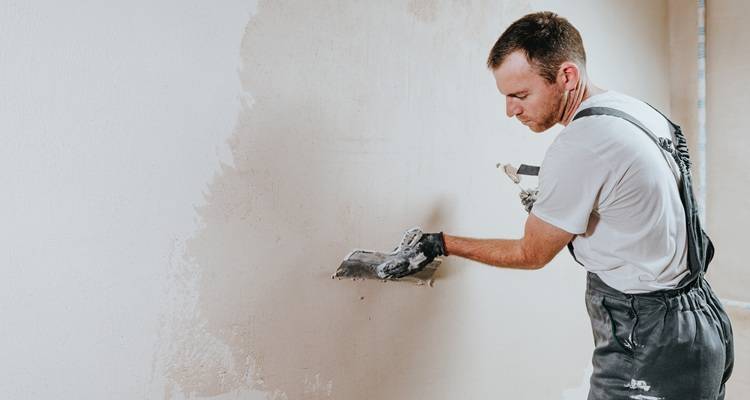
With the huge demand for skilled tradespeople, many are considering plastering as a career, and as such, many are asking how much plasterers get paid in the UK and what affects their wages.
A plasterer in the UK can earn anywhere from a few thousand to tens of thousands of pounds per year based on experience, location, type of projects and whether they are self-employed or employed by a company.
Understanding these factors will help individuals make informed decisions about their career choices and earning potential, which we will cover in this article.
Table of Contents
Plasterer Salaries
The average salary of a plasterer in the UK varies based on experience and employment status. According to some recent government data, the average plasterer salary is around £31,500 per year, which is around £16 per hour.
But this is just an average, and earnings can be higher or lower depending on many factors.
Entry-level plasterers just starting out in the trade can expect to earn around £18,000 to £22,000 per year in the early years as a professional. This lower salary reflects their lack of experience, both in skills and how long it will take to complete a job. Skills take time to build up to earn more money through higher quality plastering jobs.
Many apprentices and trainees start at the lower end of the scale, but as they gain more experience and prove themselves, their earnings can quickly rise. More experienced plasterers with several years in the trade can expect to earn between £25,000 and £35,000 per year.

These professionals have not only honed their skills over more time in the trade, but they will have also built up a strong client base and a good reputation which generally sees them win more high paying jobs, especially if they have experience in some niche plastering techniques such as venetian plastering and more decorative plastering work.
Self-employed plasterers often have more potential to earn more than they would as an employed person within a company. Sole traders earn around £55,000; however, this is before expenses such as tools, insurance and transport, so their take-home pay is closer to around £37,000.
Plasterers who run their own business and employ others can earn even more; some successful business owners take home around £45,000 after expenses.
The ability to set their rates, take on multiple projects and work flexible hours allows self-employed plasterers to increase their earnings significantly. However, be mindful that as a sole trader or business owner, your earnings are not guaranteed, and this depends on your ability to win work.
Factors Affecting Plasterer Earnings
How much plasters get paid in the UK can vary greatly based on many factors. Understanding these elements will help aspiring plasterers estimate their earning potential and make some smart decisions to maximise their income.
Experience & Skills
As with the trade industry as a whole, experience is key when it comes to determining your earnings. Newly qualified plasterers will earn wages at the lower end of the scale, but this will rise as they gain more experience, gain new skills and build up a solid customer base.
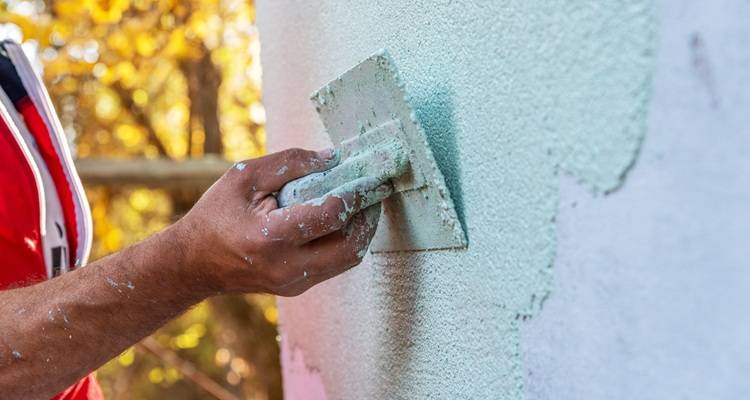
Professionals who take the time to do extra training and get industry certifications can position themselves as experts in the field and get bigger and higher-paying jobs.
Some plasterers also choose to specialise in more intricate techniques such as lime plastering or polished plastering, which attracts premium rates due to the skill and precision required.
Location
Where you are in the UK plays a big part in determining the salary of a plasterer. Look to areas with a higher cost of living like London and the southwest, and you will see that plasterers earn more than those in cheaper areas to live like Wales and the North West.
The demand for tradespeople in densely populated urban centres will often drive the rates higher for professionals, whereas rural areas with fewer people will offer lower pay and fewer opportunities. Of course the plus and minus of both is the level of competition you’ll face.
Regions that are experiencing a construction boom will provide higher wages due to increased demand for skilled tradespeople.
Type of Work
The type of work a plasterer is doing will also impact earnings quite significantly. Common domestic plastering jobs, which will take place in private homes, will provide steady work but often pay less than commercial projects.
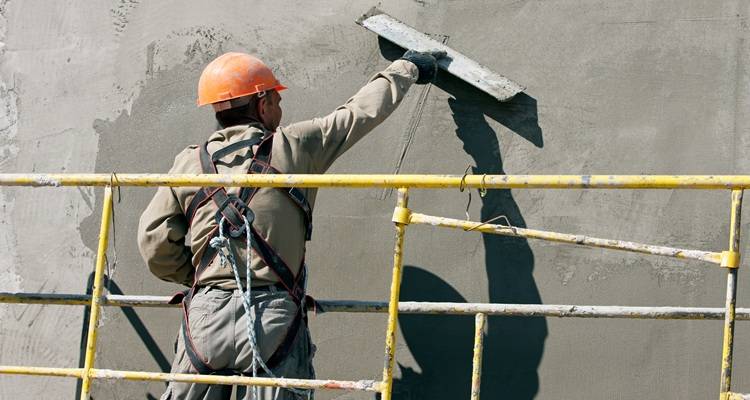
Commercial plastering, which involves working on larger-scale projects such as office buildings, schools and hospitals, can pay more due to the complexity and scale of the work and specialist plastering jobs such as decorative or heritage plastering often pay more because they require advanced skills and knowledge.
Employment Type
As we’ve mentioned in previous sections, the actual employment status plays a big part in determining earning potential.
Those who work for large plastering companies or construction firms will have a steady income, paid holidays, and other benefits like a pension, but as a result, their earnings will be capped compared to those of other professionals in the industry.
Self-employed plasterers can set their own rates and build a client base to earn as much as they can, but the catch here is that this comes with a lot of additional responsibility, such as managing business expenses, securing work and even marketing services to new clients. Not to mention, work is never guaranteed, and self-employed tradespeople often see dips and booms in their workload.
Workload & Demand
Market demand and workload significantly impact a plasterer’s income. During peak construction seasons, plasterers may find themselves in high demand and can charge higher rates and secure more work.
During slower periods like winter months, work may be less frequent, and earnings will fluctuate. Plasterers who build a good reputation and maintain a steady client base can usually avoid quiet periods.

How to Increase Earnings as a Plasterer
People often wonder how much a plasterer earns in the UK above the base salary. Well, plasterers looking to maximise their earnings can take a few strategic steps to improve their income potential.
Qualifications & Certifications
Going the extra mile and getting some industry-recognised qualifications such as NVQs will not only show job expertise but also make you a more attractive hire.
Many plasterers will do these courses or apprenticeships to get hands-on experience before continuing their professional development over the years through advanced courses for more specific plastering techniques. The more skills you have, the more you can earn.
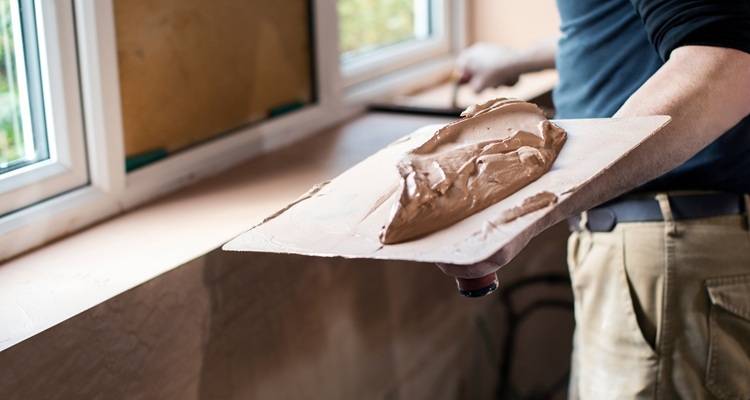
Specialising in High-Demand Areas
Plasterers who focus on some niche areas of the trade, such as venetian plastering or insulation plastering, can go on to command higher rates throughout their career.
These specialist techniques require more training and expertise, but as it’s tough to find tradespeople with these skills, the rates are very lucrative. In fact, many high-end clients and businesses seek out plasterers with these skills and will pay a premium to hire them.
Expanding Services
Adding some extra services to your armoury, like dry lining and rendering, will help plasterers diversify into other areas and income streams.
By expanding the range of services you offer, you can become more valuable to a company or be able to take on a much wider variety of work as a sole trader. Many successful plasterers branch out into related areas, such as tiling or painting and decorating, to increase their earning potential.
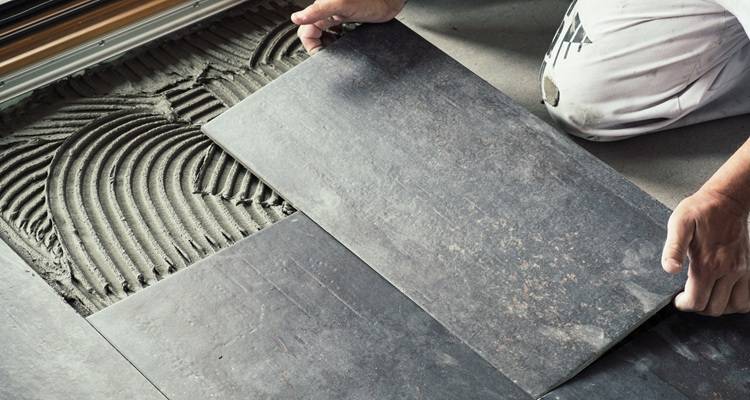
Building a Strong Reputation & Client Base
Developing a strong reputation for good work and excellent customer service will lead to repeat business and word-of-mouth referrals, and many plasterers find that having an online presence through social media or a professional website helps attract new clients.
Positive reviews and testimonials will further enhance credibility and lead to higher-paying job opportunities.
Plasterer Wages Compared to Other Trades
When considering plastering as a career choice, it’s worth comparing the earnings to other trades. For example, carpenters in the UK earn an average of £45,000, gas engineers £39,000 and Bricklayers £20,000-£40,000.
A plasterer's salary may not be the highest across the trade, but they have the potential to move into different areas through specialisation, adding services and being self-employed.
FAQs
How much does a plasterer earn in the UK?
Is plastering a good career in the UK?
The career also offers lots of progression opportunities through specialising in niche areas like insulation plastering and heritage work. And those who choose to become self-employed or start their own business can increase their income by setting their own rates and taking on bigger projects.
Plastering is a physically demanding job, but for those who enjoy hands-on work and the satisfaction of seeing a finished product, it can be a rewarding and lucrative career.
What qualifications do I need to be a plasterer?
Alternatively, enrolling in a college course such as a Level 1 or Level 2 Diploma in Plastering can provide essential skills. For those looking to gain professional recognition, an NVQ (National Vocational Qualification) in Plastering is a great route. The NVQ Level 2 in Plastering is often required for working on construction sites, and an NVQ Level 3 can lead to more advanced opportunities, such as supervisory roles or specialist plastering work.
Some plasterers also gain certifications in specialist techniques like Venetian plastering, lime plastering or external rendering, which can enhance their skills and increase earning potential. Industry training providers and organisations like CITB (Construction Industry Training Board) and City & Guilds offer recognised plastering qualifications that can improve employment opportunities.
For those entering the trade without formal education, starting as a labourer or plasterer’s mate and learning on the job is another viable pathway into the trade.
Do self-employed plasterers earn more than employed ones?
Employed plasterers will earn a steady salary anywhere between £25,000 to £35,000 per year, depending on experience and location. While employment offers stability, benefits like paid holidays and pension contributions, self employment provides the opportunity for higher earnings especially for those who establish a strong reputation and secure a steady flow of work.
However, employed plasterers must also manage their own business expenses, marketing and client acquisition, which can add extra challenges.








